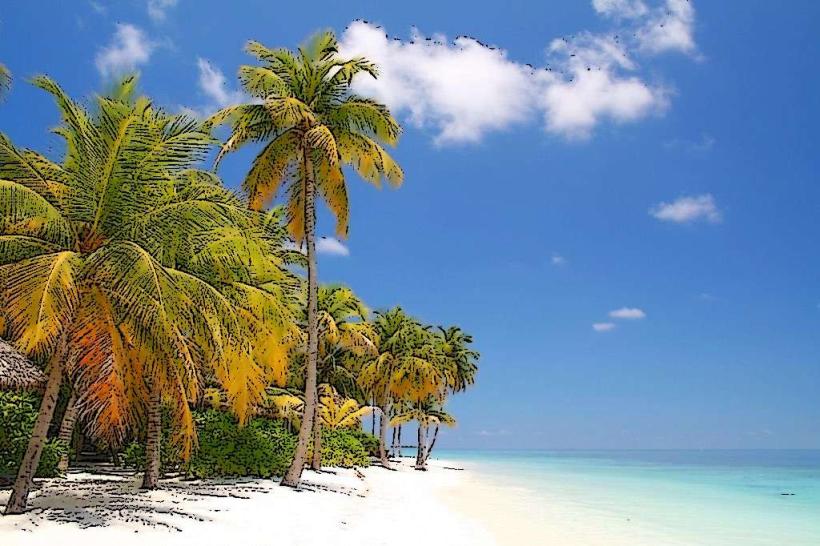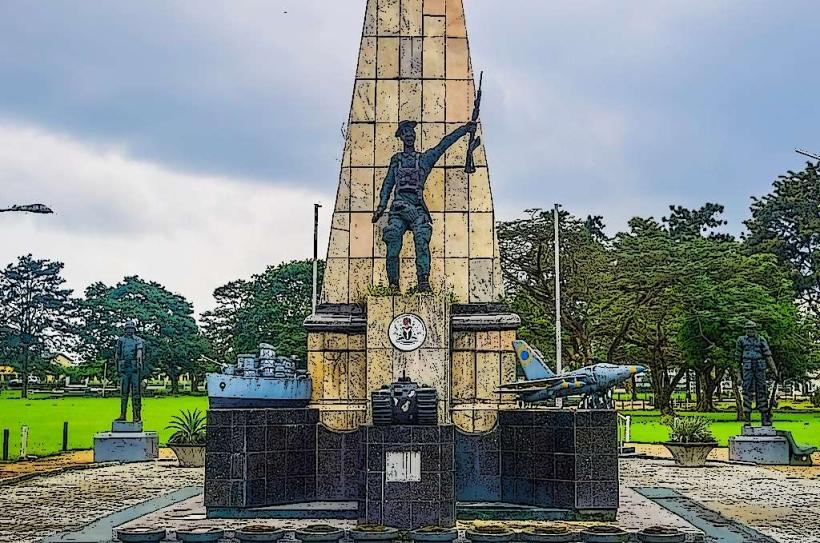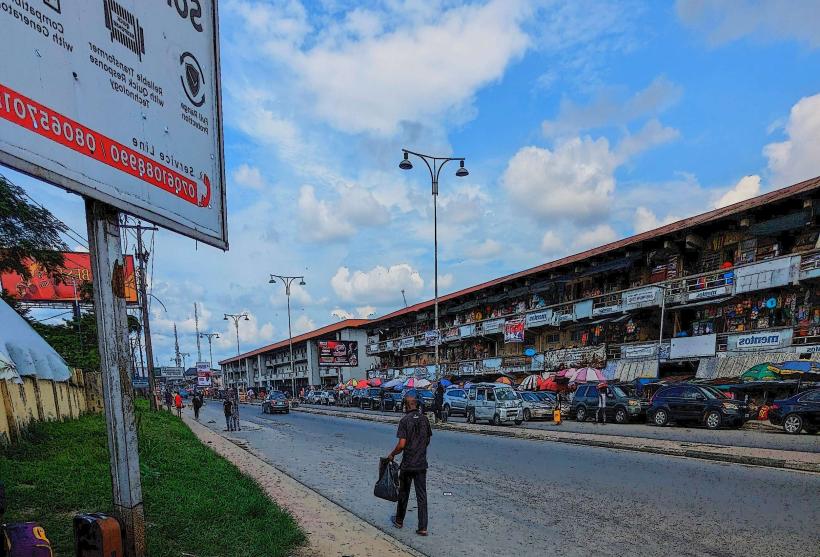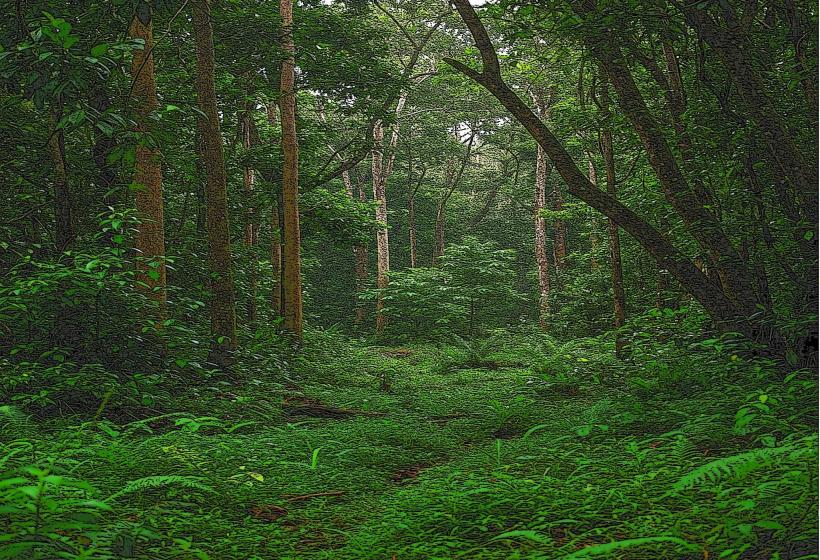Information
City: Port HarcourtCountry: Nigeria
Continent: Africa
Port Harcourt, Nigeria, Africa
Port Harcourt: Detailed Information
Port Harcourt is one of Nigeria’s major cities, located in the southern part of the country in the Rivers State. As a bustling port city, it is the commercial and industrial center of the Niger Delta region. Known for its oil industry, rich history, and diverse culture, Port Harcourt has become a prominent economic hub in Nigeria.
Geography
Location: Port Harcourt lies on the southeastern coast of Nigeria, near the Niger Delta. It is situated along the Bonny River, which connects to the Atlantic Ocean. The city is about 545 kilometers (338 miles) east of Lagos and serves as one of Nigeria’s most important ports.
Area: The city covers an area of approximately 360 square kilometers (140 square miles).
Climate: Port Harcourt experiences a tropical climate with a pronounced rainy season from April to October and a dry season from November to March. It is one of the rainiest cities in Nigeria, with an average annual rainfall of over 3,000 millimeters.
Population
Population: Port Harcourt is one of the most populous cities in Nigeria, with a population of around 2 million. However, the population continues to grow rapidly due to urban migration from rural areas and other parts of Nigeria.
Demographics: The city is ethnically diverse, with the largest ethnic group being the Ikwerre people, followed by the Ijaw, Ogoni, and other ethnic groups from the Niger Delta region. There is also a significant number of Yoruba, Igbo, and Hausa people who have migrated to the city for work and business.
History
Early History: Port Harcourt was founded in 1913 by the British colonial administration. It was originally a port for the export of coal from the nearby Enugu Coalfields. It was named after Lewis Harcourt, the British Secretary of State for the Colonies at the time.
Growth as an Oil Hub: Port Harcourt’s significance grew dramatically with the discovery of oil in the Niger Delta region during the 1950s. The city soon became the center of Nigeria’s oil industry. The Port Harcourt Refining Company was established, and many international oil companies set up operations in the city, which led to a massive expansion in both population and infrastructure.
Post-Independence: After Nigeria gained independence in 1960, Port Harcourt continued to grow rapidly due to its proximity to oil reserves, and it played a major role during the Biafra War in the 1960s. Over time, it has developed into one of Nigeria's key economic cities.
Economy
Port Harcourt is an economic powerhouse and the center of Nigeria’s oil industry. The city’s economy is driven by its role in the petroleum sector, but it also has important industries in agriculture, manufacturing, and trade.
Oil and Gas: Port Harcourt is the primary hub for Nigeria’s oil industry, with many multinational oil companies such as Shell, Chevron, and ExxonMobil having their headquarters or operations in the city. The city’s oil refineries and liquefied natural gas (LNG) plants are critical to Nigeria's energy sector.
Shipping and Port Facilities: As a key port city, Port Harcourt handles a large amount of the country’s imports and exports. The Port Harcourt Port is a major center for the distribution of goods, especially petroleum products and agricultural exports.
Manufacturing: The city is home to many manufacturing industries, including cement plants, food processing, and textile mills. The Indorama Eleme Petrochemicals is one of the largest industrial operations in Port Harcourt.
Agriculture: Agriculture is an important part of the local economy, with the region producing crops like yams, cassava, plantains, cocoa, and oil palm. The Niger Delta region is also known for its fishing industry.
Culture and Society
Port Harcourt is a culturally rich city, home to a diverse population with various ethnic backgrounds. The culture of the city reflects the blend of the indigenous peoples of the Niger Delta, migrant communities, and the influence of oil and business.
Ethnic and Cultural Diversity: The city has a rich mix of cultures, with the Ikwerre people being the largest ethnic group. The Ijaw, Ogoni, and other ethnic groups in the region also contribute to the vibrant cultural scene.
Festivals and Celebrations: Port Harcourt is known for its cultural festivals such as the Rivers State Carnival, which showcases traditional music, dance, and art. Other events include the Port Harcourt International Jazz Festival, which attracts international jazz musicians.
Cuisine: The city’s cuisine is influenced by the diverse ethnic groups living there. Popular local dishes include stewed goat meat, pounded yam, edikang ikong soup, fish pepper soup, and bitterleaf soup. The abundance of fish and seafood from the surrounding coastal areas also influences the local food culture.
Music and Arts: Port Harcourt has produced several notable Nigerian musicians and artists, especially in the genres of hip hop, Afrobeat, and highlife. The city is also known for its vibrant art scene, with galleries and exhibitions that showcase both traditional and contemporary Nigerian art.
Tourist Attractions
Port Harcourt offers a number of attractions for both tourists and residents. The city is home to parks, museums, markets, and other cultural sites that reflect the unique heritage of the Niger Delta.
Port Harcourt Pleasure Park: A popular destination for relaxation and recreation, Port Harcourt Pleasure Park features amusement rides, playgrounds, and picnic areas. It is ideal for family outings and social gatherings.
National Museum Port Harcourt: The museum showcases the rich cultural heritage of the Niger Delta and Nigeria as a whole. It features a wide range of artifacts, relics, and exhibits related to the region’s history, particularly in relation to the Nigerian Civil War and the oil industry.
Isaac Boro Park: This park is dedicated to the memory of Major Isaac Adaka Boro, a prominent leader in the Niger Delta’s struggle for self-determination. The park has statues and memorials and is a great place to learn about the history of the region.
Rivers State Cultural Centre: A cultural hub for performing arts, this center is known for hosting theatre performances, music events, and dance shows.
Kongi’s Harvest Art Gallery: Known for its displays of contemporary Nigerian art, this gallery showcases the works of local artists, and it often hosts exhibitions of traditional and modern art.
Okrika Beach: Just outside of Port Harcourt, Okrika Beach is one of the best coastal areas for enjoying a relaxing day by the sea. The beach is ideal for picnics, water activities, and beach sports.
Niger Delta Wetlands: The Niger Delta region, including areas around Port Harcourt, is home to vast wetlands that are vital to the ecosystem. These wetlands are rich in biodiversity, including birds, fish, and wildlife, making them ideal for eco-tourism and nature exploration.
Transportation
Port Harcourt is well-connected by road, air, and sea, facilitating the movement of people and goods both within the city and internationally.
Road Transport: Port Harcourt is connected to other parts of Nigeria by well-maintained highways, such as the East-West Road, which links the city to major towns and regions like Calabar and Uyo.
Public Transport: The city has a variety of public transport options, including buses, taxis, and tricycles (locally called “Keke NAPEP”). Ride-hailing services like Uber and Bolt are also popular.
Air Transport: Port Harcourt is served by the Port Harcourt International Airport, which handles both domestic and international flights. The airport is located about 25 kilometers (15 miles) from the city center.
Sea Transport: As a port city, Port Harcourt is an important center for sea transportation. The Port Harcourt Port handles a significant amount of the country's imports and exports, including oil and gas products.
Challenges
Despite its rapid development, Port Harcourt faces several challenges:
Environmental Pollution: The oil industry has had a major impact on the environment, contributing to oil spills, gas flaring, and water pollution in the region. This has affected the health of both residents and the local ecosystem.
Traffic Congestion: Like many rapidly growing cities, Port Harcourt struggles with traffic congestion, especially during rush hours.
Infrastructure: While the city has modern infrastructure in many parts, there are still challenges related to road conditions, water supply, and waste management.
Security: The city, like other parts of the Niger Delta, has experienced occasional unrest related to the oil industry and local militancy. However, the government and security agencies continue to work on improving safety.
Conclusion
Port Harcourt is a dynamic city at the heart of Nigeria’s oil industry and an important cultural and economic hub in the Niger Delta. With its growing population, thriving industries, and rich cultural heritage, it continues to play a significant role in Nigeria's development. Despite facing environmental and infrastructural challenges, Port Harcourt remains one of the most important and fascinating cities in the country.







